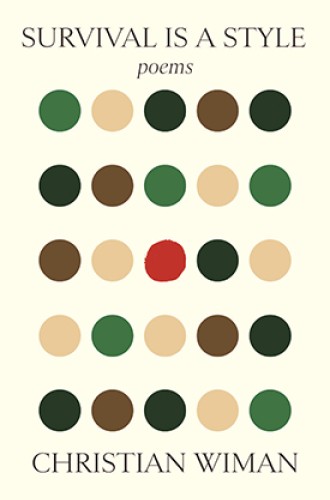Christian Wiman’s poems of love and doubt
Massive struggle, intense suffering, and abundant joy
The expression of doubt can be a refreshing alternative to most contemporary poets’ disregard for issues of faith. For Christian Wiman, doubt has not quite solidified into unbelief, which means his poems are saturated with the largest questions one can ask.
A former editor of Poetry magazine, current professor of religion and literature at Yale Divinity School, and author of two memoirs and numerous books of poetry, Wiman combines devotion to the poetic craft with a hunger for God’s presence and a skepticism about traditional means of satisfying that hunger.
Raised in rural Texas, he quickly outgrew the fundamentalism that permeated his early years. Only later, after falling in love and being diagnosed with cancer, did he return—not to the narrow world of his early religious experience but to a faith (which he calls love) that not only allowed his questions but embraced them as a sign of spiritual life.
In the poems in Wiman’s new collection, the strain toward resolution of what he cannot completely resolve is momentous. In the first poem, “Prologue,” he says, “I need a space for unbelief to breathe. / I need a form for failure, since it is what I have.” A prose poem later in the collection captures this struggle in Wiman’s response to being called a heretic: “What I should have answered is that there are no heretics, or that there are only heretics; that humans—mere and mirrored creatures that we are—move toward God in language, and to speak language is to profane him.” This is certainly a dilemma for one whose calling is to use language, albeit to use it to express the inexpressible.
Wiman is frustrated with the inadequacies of the language he is tethered to as he believes yet unbelieves, and this frustration finds expression in several poems. “People ask if I believe in God and the verb is tedious to me,” he writes in one. “Not wrong, not offensive, not intrusive, not embarrassing. / Tedious.” Yet in the same poem, a long meditation on memories of his father, he finds forgiveness for his father and a reconciliation with his past—and, to a certain extent, with God—through the act of writing:
When I began writing these lines
it was not, to be sure, inspiration but desperation,
to be alive, to believe again in the love of God.
The love of God is not a thing one comprehends
but that by which—and only by which—one is comprehended.
. . . . . . . . . . . . . . . . . . . . . . . . . . . . . . .
Flashes and fragments, flashes and fragments,
these images are not facets of some unknowable whole
but entire existences in themselves, like worlds
that under God’s gaze shear and shear and, impossibly, are:
untouching, entangled, sustained, free.
In another poem, Wiman describes Sundays at the cancer hospital where he receives chemo. “No cure,” he writes in his solitude, but in the next sections the poem opens up with his awareness of a mountain’s permanence and a hint of “the consolation / of a continuation / that has nothing to do / with you,” followed by his escape with his family into the mountains and his awareness of the wonders of the love that binds them.
Wiman finds other wonders in the world he inhabits. The old dog Rosie, whose “taut knobs of . . . teats nearly touch the dust,” is “chunk-necked, long-bodied, lug-legged, smudge-colored” as she “lugs her nubs up the porch steps and sighs loudly down / as if she’s been deflated.” He ends another poem in laughter as he describes the beauty of “eating grapes downward” while his daughters feed Mona, a miniature cow.
His imagination is particularly at work in a poem called “I don’t want to be a spice store.” He expresses his allergy to stores “brined in charm,” saying that he would rather “be the one store that’s open all night / and has nothing but necessities,” including superglue and “a whole bevy of nontoxic solutions / for everyday disasters.” This store is one his father would “find . . . open / on Christmas morning in his last-ditch-lone-wolf drive / for gifts” which might include:
‘Light of the World’ penlight,
bobblehead compass, fuzzy dice.
I want to hum just a little with my own emptiness
at 4 a.m. To have little bells above my door.To have a door.
Wiman does hum—if not with his own emptiness, then with the possibility that there is, in the end, a door to what is most necessary.
At one point he writes, “I’m done with, by the way, / the whole concept of soul.” He insists, “I’m a licked Christian.” And yet in his final poem, “Epilogue,” he writes:
The more I feel the more I think
that God himself has brought me to this brink
wherein to have more faith means having less.
And Love’s the sacred name for loneliness.
Wiman’s struggle is massive, his suffering intense, and his joy if not abundant often irrepressible.
He suggests, “For love read faith / into these lines that so obviously lack it.” Thus Wiman fills in a gap that others have left wide open: love and faith are inextricably entwined. In fact, they are each other.





